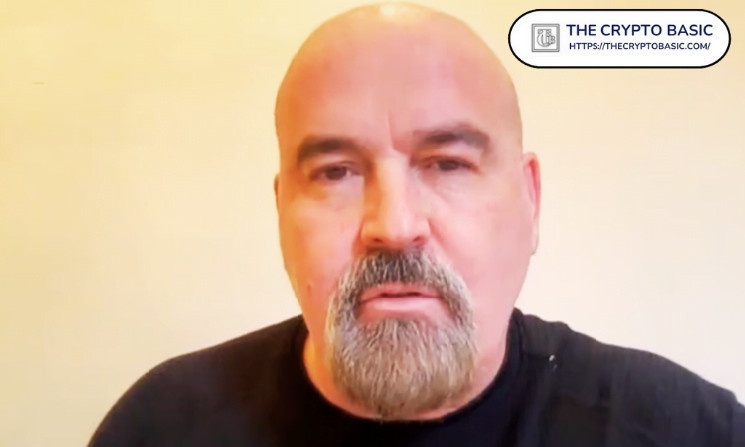Ripple’s Fair Notice Defense: Deaton Explains Why It Doesn’t Lack Merit
In the ongoing legal battle between the US Securities and Exchange Commission (SEC) and Ripple Labs, the Fair Notice Defense has come to the forefront. Many critics argue that Ripple’s Fair Notice Defense lacks merit. However, prominent attorney and XRP advocate, John E. Deaton, recently shared his insights on this subject, highlighting why the Fair Notice Defense does not lack merit.
From the onset, it is essential to understand that Ripple is arguing that the SEC has not provided themFair Notice that XRP transactions constitute securities under the Securities Act. As a result, Ripple is using the Fair Notice Defense to argue that the SEC has failed to provide sufficient regulatory guidance and clarity regarding the classification of XRP, and consequently, the company should not be held accountable in court for the sales of an unregistered security.
In his argument, Deaton delves into the intricacies of Ripple’s Fair Notice Defense, shedding light on key aspects commonly misrepresented or understated by the media and the broader cryptocurrency community.
1. Precedents in Supreme Court Cases
Deaton highlights that the Fair Notice Defense has its roots in several Supreme Court cases. The seminal case, Upton v. SEC (1976), established the guidelines for the Fair Notice Defense, specifically stating that an agency must provide clear guidance and avoid prosecuting entities when no guidance or ambiguous guidance has been provided.
Moreover, when an individual or entity cannot reasonably anticipate what constitutes a violation, the Court’s rulings dictate that such a person or entity should not be prosecuted.
Given that the SEC only issued cease-and-desist orders for Initial Coin Offerings (ICOs) of other cryptocurrency projects and never provided a warning or enforcement action against Ripple or XRP, it may be posited that Ripple did not willfully violate securities laws due to the absence of Fair Notice.
2. Congress and the SEC’s Failures in Crypto Regulations
Deaton also points out that Congress and the SEC have failed to update and clarify the Howey Test to cater explicitly to cryptocurrencies. Therefore, industry participants have been provided little guidance regarding the application of the securities test to digital assets.
The SEC’s failure to provide structured guidelines for digital assets despite their prominence in the last decade has resulted in regulatory confusion. In such a scenario, the Fair Notice Defense becomes even more relevant, as Ripple may argue that the lack of clear regulations and enforcement actions has not allowed them to fully understand the implications of their actions.
3. SEC Commissioners’ Public Comments
The public comments of the SEC’s own Commissioners, Hester Peirce (known as Crypto Mom) and Elad Roisman, illustrate the profound lack of clarity and consensus within the SEC itself. In a July 2021 public statement, Peirce and Roisman acknowledged that the agency had failed to provide meaningful guidance on the application of the Howey Test to crypto assets.
These admissions of regulatory ambiguity further strengthen the claim that Ripple’s Fair Notice Defense does not lack merit, as such admissions are indicative of the unclear regulatory landscape that Ripple has been operating within.
4. Regulatory Capital Markets Expert’s Testimony
Deaton emphasizes the importance of Joseph Hall’s testimony, where the regulatory capital markets expert stated that “in all those years, nobody to my knowledge in the public or private sector has treated XRP as a security.”
Considering that even the SEC temporarily listed XRP as a “virtual currency” in 2018, the regulatory ambiguity around XRP’s classification as a security bolsters the argument for Ripple’s Fair Notice Defense.
5. Existence of the Doctrine of “Void-for-Vagueness”
Deaton also highlights the doctrine of void-for-vagueness and argues that laws need to be clear and understandable to allow individuals to govern their actions accordingly. Given the regulatory ambiguity surrounding cryptocurrencies and the complex application of the Howey Test to such digital assets, the Fair Notice Defense becomes even more relevant in Ripple’s current legal matters with the SEC.
In conclusion, the Fair Notice Defense does not lack merit, despite claims by critics. Ripple’s argument is grounded in the absence of clear SEC guidelines and enforcement actions, and is supported by Supreme Court precedents, public statements from the SEC’s commissioners, expert testimony, and the doctrine of void-for-vagueness. As such, Ripple’s Fair Notice Defense plays a pivotal role in the company’s legal battle against the SEC, and its merits should not be dismissed without proper examination of the facts and arguments.


